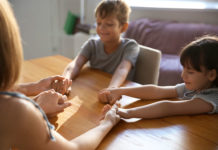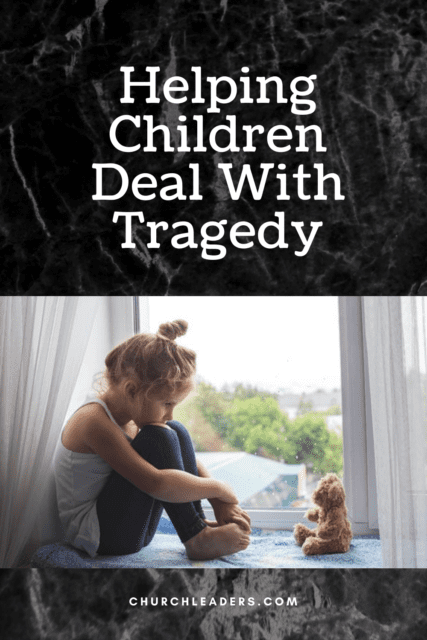4) Continue regular routines. Routines provide security, and many children need that security in order to process difficult things effectively. Although you’ll continue the schedule and maintain the agenda, that doesn’t mean that you ignore the issues. Take time to talk and discuss what’s happening. Your children need a sense that they have somewhere to go to process what’s happening in life.
5) Limit TV viewing. Some parents believe that they should encourage their children to watch the events because of their historical value. Although being informed can be helpful, the continual display of destruction and violence can do more damage than good. Many parents, who wouldn’t let their children watch a violent movie, allow them to see the same kinds of things on the news over and over again. This can feed negative emotions and hinder a child’s ability to process what’s happened. Young children think concretely, and when they see the same thing over and over again, they may believe that the event is continuing to happen over and over again. Even adults experience the same emotions when they see the event repeated. TV has a number of benefits, but reliving tragedy can be counterproductive and hinder the growth process.
6) Be sensitive to developmental stages and a child’s unique personality. Preschoolers think concretely. Somewhere around 6-9 years old, children usually develop the ability to understand concepts like terrorism, death, or patriotism. At 10-12 years old, children begin to understand those abstract ideas in very personal ways. The 11 year-old may now realize the permanency of death and the significant value of patriotism to them personally. Teens are choosing values to live by and hunt for them in life. They often want things clear-cut and challenge those who might disagree with them. Some children withdraw while others speak out. Some may joke about things inappropriately. As you talk to your children take all these things into account. Share with them on their level, as much information as they need or want. Trying to protect children from this by not talking about it can produce more fear as they sense something is wrong. Also, be careful about overdosing a child with too much information. Your sensitivity here will provide tremendous opportunities to help your children understand and deal with these events properly.
7) Model right thinking with your children. Many parents are modeling revenge, worry, and panic. The way you respond to these events may teach more than your words do. Teach your children what it means to trust God in very practical terms. Don’t be afraid to be vulnerable with your kids and talk about how you, as a family, are experiencing and learning from these tragic events.
8) Look for proactive ways to be involved in the solution, not just talk about the problem. Adopt a soldier, take food to those in need, create a care package for those who are hurting are all examples of ways to help children help and care for others.
Take time to ask your children how they are doing. Come back several hours after a significant conversation and say things like, “I wondered if you had any other thoughts about what we talked about earlier.” As you work through these things with your children, you are giving them a gift. You are helping them understand life, and how God works and the important values they desperately need. You will contribute to your child’s future well-being and their ability to process other tragedies in helpful ways.












